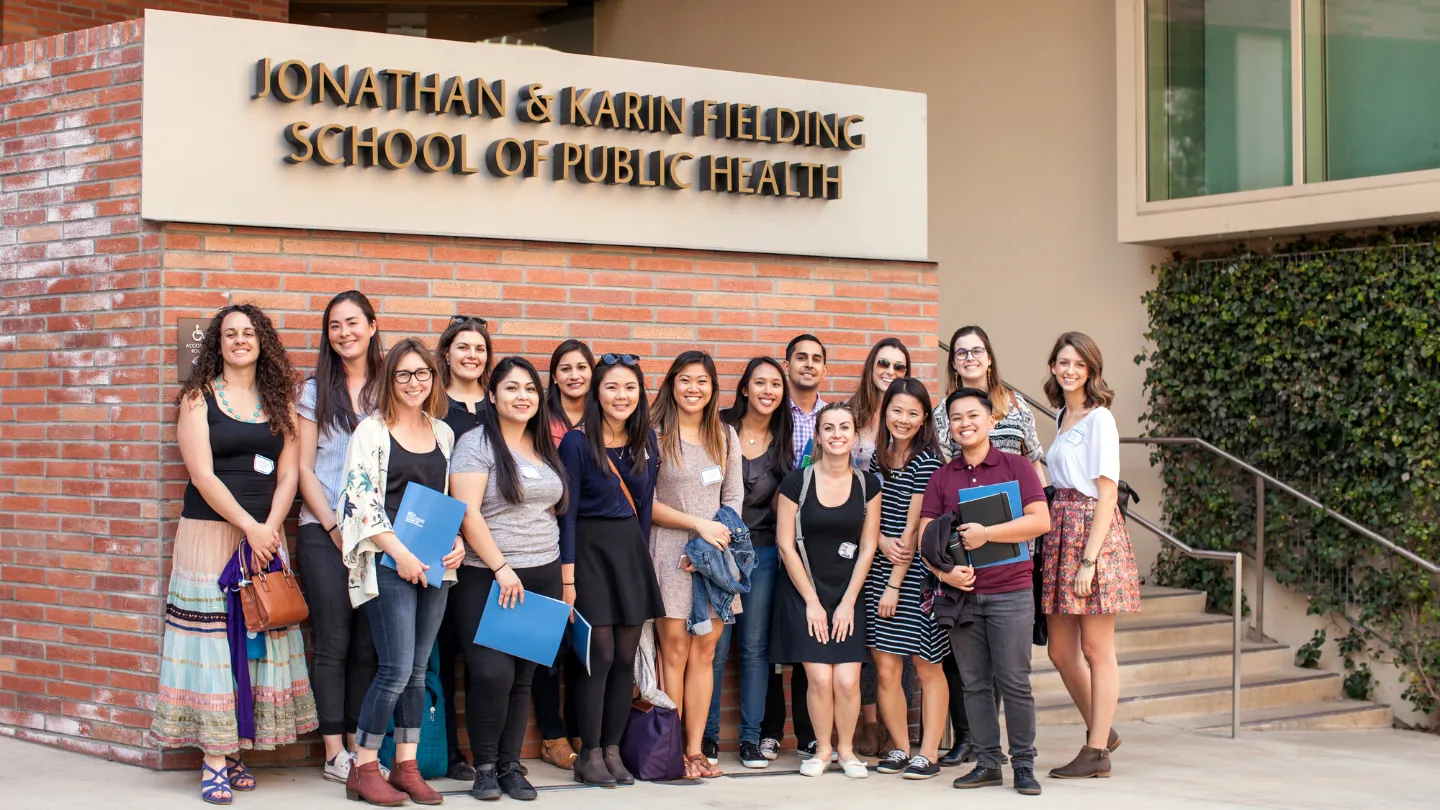Why UCLA Fielding
Exceptional students and world renowned faculty in a unique setting to address public health challenges confronting our global community.

The UCLA Fielding School of Public Health aims to build health and equity, and to drive positive change for all people. We act on this mission through initiatives in three core areas: education, discovery, and service. In each of these realms, we affirm our commitment to developing leaders and evidence-based solutions, and to working in partnership with communities to promote health and well-being in ways that are innovative, respectful, and inclusive.
Exceptional Students
The UCLA Fielding School of Public Health — ranked number 8 (tied) in the country by U.S. News & World Report in 2025 — is home to one of the brightest and most diverse public health student bodies in the United States, with more than 1,000 students hailing from 25 countries. UCLA Fielding has five academic departments — Biostatistics, Community Health Sciences, Environmental Health Sciences, Epidemiology and Health Policy and Management — and offers seven degree types: BS, BA, MPH, MS, MHA, MDSH, and PhD. Additionally, concurrent and articulated degrees and certificates enable students to gain specialized knowledge in areas such as global health, population and reproductive health, environmental health, and health care management and leadership. Our students also have access to a wide range of local and global hands-on training opportunities that provide the skills needed to move public health evidence to action.

World-Renowned Faculty
Fielding School faculty are leading efforts that improve people’s lives in Los Angeles and around the world. From addressing COVID-19 and tackling longstanding health inequities, to climate change, cancer care, and protecting people from food and occupational hazards, FSPH faculty work on the front lines of change.
Our research centers lead innovative efforts in health equity, infectious diseases, nutrition, environmental genomics, health policy, climate change, global and immigrant health, social policy, population and reproductive health, and more. The school also has 19 Memoranda of Understanding with institutions in countries that include Cambodia, China, Democratic Republic of the Congo, Germany, Mexico and the Philippines. Multidisciplinary collaboration is encouraged and enhanced by FSPH’s presence on UCLA’s unified campus — the schools of medicine, law, nursing, management, public policy, dentistry, engineering, and more are all located on the Westwood campus of UCLA, ranked by U.S. News & World Report as the number 1 public university in the country.

Why Los Angeles
Los Angeles (L.A.) is a unique setting to address public health challenges confronting our global community. L.A. County has the largest population of any county in the United States and is one of the most populous metropolitan areas in the world. Its nearly 10 million residents represent more than 140 cultures and speak an estimated 224 languages.
With an average of 292 sunny days per year and UCLA’s location five miles from world-famous Santa Monica beach, which includes access to a 22-mile-long path for bicycling, skating, jogging and walking, L.A. has much to offer in the way of a healthy and happy lifestyle. Home to countless parks and hiking trails and some of the nation’s best museums, music and farmers markets, Los Angeles is internationally recognized as one of the most livable cities in the world.
Dr. Ron Brookmeyer serves as dean of the UCLA Fielding School of Public Health which is accredited by the Council on Education for Public Health (CEPH). To view the UCLA Fielding School's most recent self-study and/or CEPH accreditation report, please visit this link.